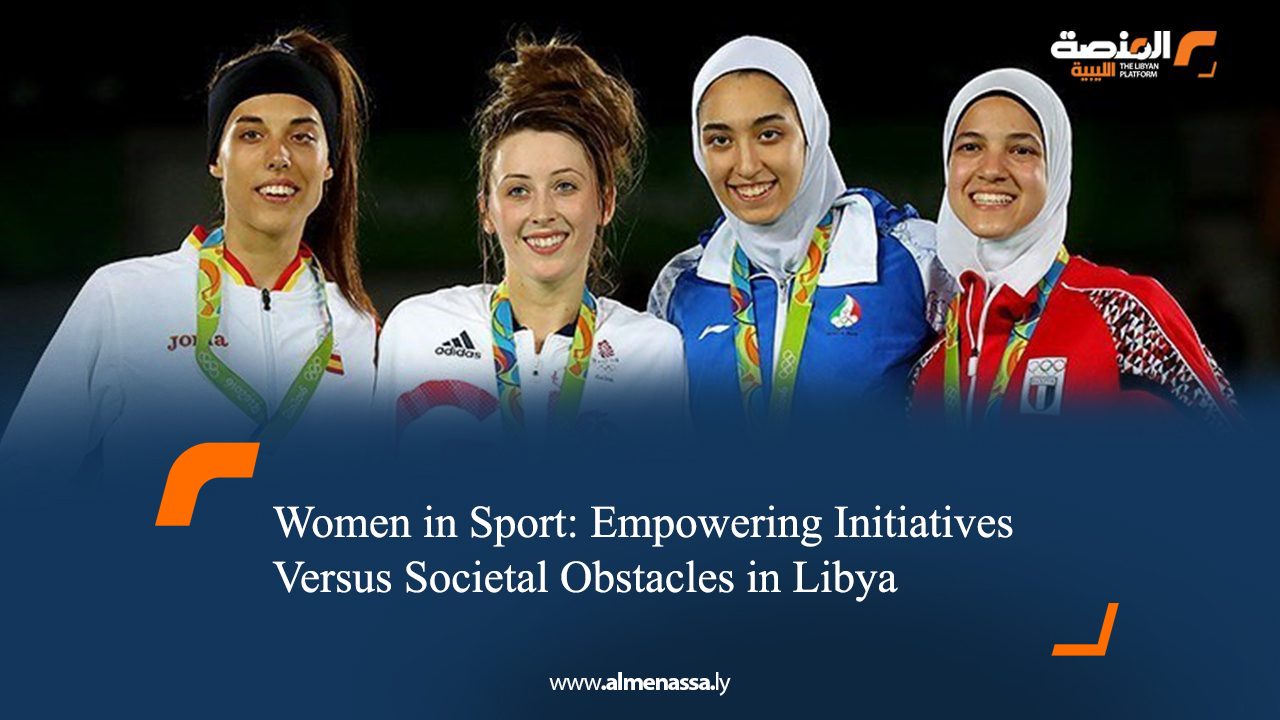Two days ago, the United Nations Human Rights Council in Geneva unanimously adopted a resolution titled “Empowering Women and Girls in and Through Sport.” In this context, Arab women have achieved remarkable successes, reaching global recognition despite prevailing social restrictions. However, what is the situation for Libyan women and their role in sports?
This question can be addressed by recalling the 2013 incident where the Libyan women’s football team was prevented from participating in a women’s football tournament held in Germany that July. The decision sparked widespread reactions among Libyans, who, as often, were divided between supporters and opponents.
Little has changed between 2013 and this year, despite more than a decade passing. Last May, the Libyan Football Federation’s announcement of opening registration for the first gathering to select players for the national women’s team, in preparation for upcoming international commitments, ignited a broad wave of debate.
Although this initiative is unprecedented in its official and public nature, it faced clear rejection and criticism, particularly from conservative segments of society who believe that women’s public participation in sports, especially football, may conflict with social traditions and norms. Some voices went further, deeming such initiatives to be in opposition to Islamic values.
This critical stance emerges against a backdrop of support efforts from both the government and the international community. In 2024, the European Union Ambassador to Libya, Nikola Orlando, along with the Minister of Women’s Affairs in the Government of National Unity (GNU), Houria Al-Tarmal, honoured “Exceptional Libyan Sportswomen.”
Concurrently, initiatives have begun to surface aimed at increasing women’s participation in various sports activities, whether at club or national team levels. Efforts are also underway to raise awareness about the importance of women’s involvement in sports, through media channels and dedicated women’s sports events, in addition to activities organised by civil society organisations.
Reluctance Among Women
Souad Al-Shaibani, head of the Women’s Football Committee, expressed her regret over the reluctance of Libyan women to participate in or pursue professional careers in sports, despite the availability of numerous incentives and support, according to her. She commented that “societal culture prevents them, as it views women’s professionalism in this field with suspicion, even though FIFA has permitted Muslim players to wear headscarves since 2009.”
Al-Shaibani added: “We are striving to encourage women and girls to play and be respected, and the importance of sport is not exclusive to men. There must be dedicated sports facilities for them, as a principle of equality. The absence of these sports facilities constitutes a violation of women’s rights in Libya.”
Women’s Sports Rights
For his part, Adel Al-Khumsi, president of the Men’s Football Federation, opined that “Libya has not yet reached a culture that grants women the right to practice and professionalise in sports; the ‘housewife’ mentality still prevails.”
He further stated that “sports federations view women’s participation and professionalisation in football as secondary and unnecessary.” He considered this “one of the biggest mistakes that has obscured the identity of Libyan women at both African and Arab levels,” citing the example of internationally professional Libyan athlete Retaj Al-Sayeh, who won medals in shot put but was neglected and undermined, at a time when she could have been an African and Arab champion.
Protective Legislation
Sports journalist Khairi Al-Qadi placed responsibility on “the relevant sports bodies such as the Ministry of Sports, the Olympic Committee, and sports federations across all disciplines.” He stressed “the necessity of building and preparing facilities to accommodate female athletes who wish to pursue international professionalism, as they bring medals and titles and raise their country’s flag in international forums.”
Meanwhile, legal advisor Wael Bin Ismail confirmed “the absence of any legislation in Libya that legally prohibits or restricts women’s right to practice sports. The issue lies within customs, traditions, and the Libyan perception of women’s right to engage in sports.”
In this regard, slogans have emerged demanding the enactment of laws and legislation to protect women’s rights in sports and ensure a safe and suitable environment for participation.
Empowering Libyan women in sports remains a goal worth pursuing, requiring concerted efforts and the overcoming of challenges to ensure their effective and sustainable participation in this field.


